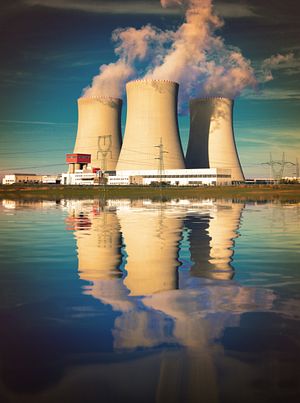Japan’s Nuclear Regulation Authority (NRA) on Wednesday said it would begin a safety inspection at Tohoku Electric Power Co.’s Higashidori Nuclear Power Plant. This announcement comes as Tokyo Electric Power Co. (Tepco) said on Tuesday that its proposed ice wall at the Fukushima Daiachi nuclear plant was running into problems and behind schedule. Shareholders in Japan’s nuclear power plants have also shown interest in reducing the portion that nuclear energy comprises of Japan’s energy mix.
The NRA plans to begin a limited safety assessment at the Higashidori plant. The NRA had initially said it would wait to begin the inspection until after a separate investigation into whether an active fault existed under the plant was concluded. NRA commissioner Kunihiko Shimazaki says the decision “will not affect” the current investigation into the fault below the plant. The NRA said it will not include issues specific to the plant (another possible reference to the fault investigation), but will instead focus on issues such as whether the filtered venting system is performing properly. While the NRA inspection has begun, no timeline has been set, and though the NRA has received 19 safety applications to date, none of Japan’s 48 reactors have a definite restart date.
Meanwhile, Tepco has announced that its project to build an ice wall below the damaged Daiachi No.1 reactor, to prevent groundwater from flowing into the reactors basements and becoming contaminated, is experiencing delays. According to a Tepco spokesperson, “We have yet to form an ice plug because we can’t get the temperature low enough to freeze the water.” The company plans to install more pipes to help freeze the surrounding soil, and remove contaminated groundwater accumulating in the trenches it has dug.
As energy companies attempt to bring their reactors back online and contain the ongoing problems in Fukushima, shareholders in the country’s nine nuclear power companies have asked the government to reduce or abolish the use of nuclear power, according to the Asahi Shimbun. This is the first time shareholders from all nine companies have made such request, although they represent a small minority of total shares. The rest are mainly held by large companies and financial institutions. The group is not expected to cause a change in policy when the companies hold an annual shareholders meeting on June 26, and each of the companies currently have plans to restart their nuclear reactors.
While 58 percent of Japanese people oppose restarting the country’s nuclear reactors, and 59 percent oppose using nuclear energy to fuel economic growth, The government and Japanese energy providers are still constrained in their choice of cheap energy options, and meeting this summers peak demand will likely be difficult. Tension between these opposing views is not likely to diminish in the near future, yet as the government has shown by its new appointments to the NRA, a move toward nuclear restart is probable.

































